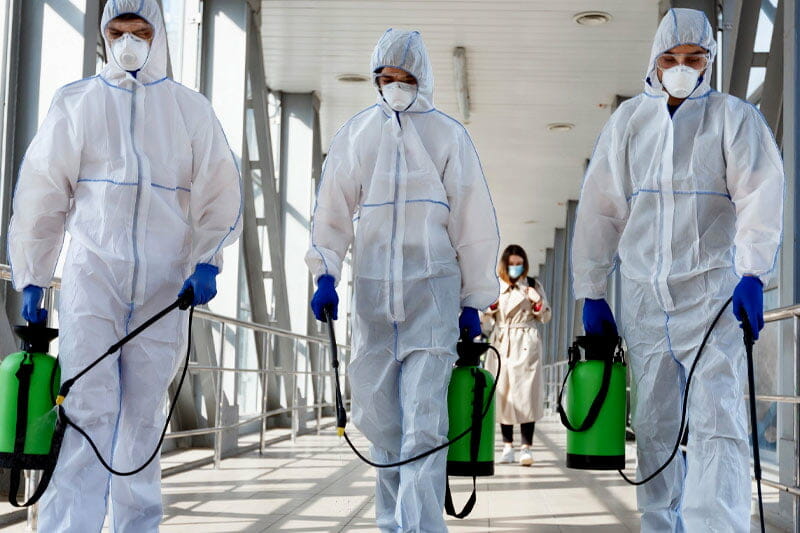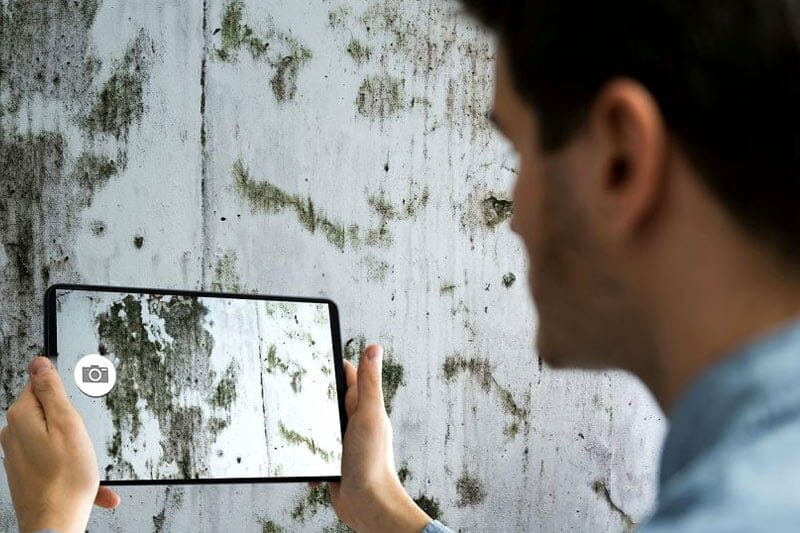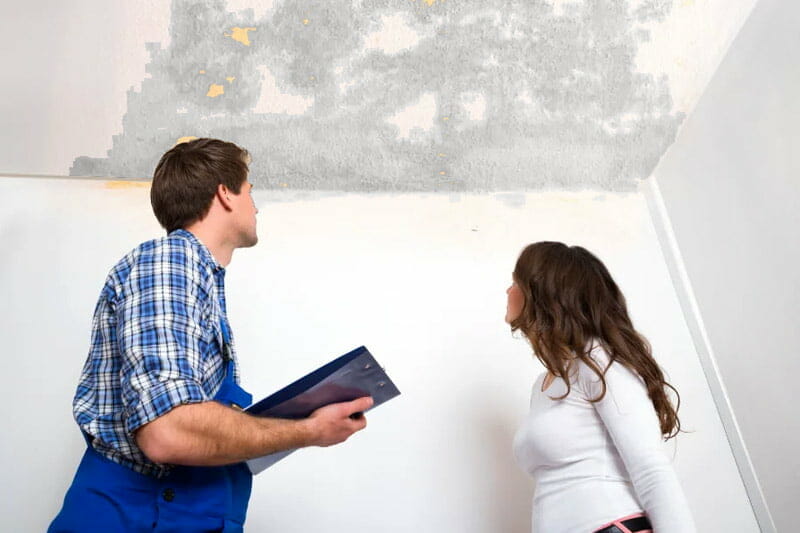Since the introduction of the Mold Laws in New York, tenants, property management teams, and real estate proprietors have been carefully and wisely choosing mold remediation services to address their mold issues. Fortunately, the state of New York has set forth regulations to adeptly handle this concern.
The state of New York has a list of requirements required by law for mold assessors, remediators, and removers. Individuals who wish to seek the services of mold companies can use this to help them select who to hire.
This law was enforced by the Mold Program to protect both property owner and tenant by ensuring that these professionals are qualified to engage in a mold project.
What we cover
ToggleNew York State Mold Assessor License Application
Mold workers are required to undergo official training by the Department of Labor and have a mold-related license issued by the Commissioner.

Here are the five (5) mold-related licenses, along with their application requirements according to NY DOL:
Mold Assessor License Requirements
- Be eighteen (18) years of age or older
- Complete a Mold Assessor Training Course with an approved training provider from the Department of Labor
- Submit the complete Mold Assessor License application form
- Pay the required application fee of $150
- Submit proof of employment by a licensed Mold Assessor Company
Mold Assessment Contractor License Requirements
- Be eighteen (18) years of age or older
- Complete a Mold Assessor Training Course with an approved training provider from the Department of Labor
- Submit the complete Mold Assessment Contractor License application form
- Pay the required application fee of $150
- Submit proof of:
- Workers’ Compensation Coverage, if required
- Disability Insurance Coverage, if required
- Liability Insurance Coverage of at least $50,000 providing coverage for claims from the licensed activities and operations performed according to Article 32 of the New York State Labor Law
Mold Remediation Contractor License Requirements
- Be eighteen (18) years of age or older
- Complete a Mold Remediation Contractor Training Course with an approved training provider from the Department of Labor
- Submit the complete Mold Remediation Contractor License application form
- Pay the required application fee of $500
- Submit proof of:
- Workers’ Compensation coverage, if required
- Disability Insurance Coverage, if required
- Liability Insurance Coverage of at least $50,000 providing coverage for claims from the licensed activities and operations performed according to Article 32 of the New York State Labor Law
Mold Abatement Worker Supervisor License Requirements
- Be eighteen (18) years of age or older
- Complete a Mold Abatement Worker Training Course with an approved training provider from the Department of Labor
- Submit the complete Mold Abatement Worker Supervisor License application form
- Pay the required application fee of $50
Mold Abatement Worker License Requirements
- Be eighteen (18) years of age or older
- Complete a Mold Abatement Worker Training Course with an approved training provider from the Department of Labor
- Submit the complete Mold Abatement Worker License application form
- Pay the required application fee of $50
New York State Licensed Mold Assessor Lookup
A Mold Project is basically the general term for any mold-related activity, whether it is an assessment, remediation, or abatement.
Any individual that engages in a mold project should have a license specific to the type of mold work they do. If you ever need one of these professionals, New York has made it easier for people to look for them.
You can find mold assessors, mold assessment contractors, mold remediation contractors, mold abatement worker supervisors, and mold abatement workers in the Department of Labor’s Licensed Mold Contractors Search Tool.

New York Mold Law Article 32
Article 32 of the New York State Labor is a consumer protection act that establishes the licensing requirements and minimum work standards for mold professionals.
The Mold Program enforces Article 32 to protect both property owner and tenant to assure that the people hired to assess and remediate mold are licensed and have undergone training by the Department of Labor.
The three (3) components of the law are:
Training
Before obtaining their licenses to perform in any mold project, mold contractors are required by the Mold Program to obtain appropriate mold training courses.
Licensing
- Licensed contractors are the only mold workers qualified to engage in a mold project.
- It is illegal to perform mold assessment, mold remediation, or mold abatement with an expired license or without a valid mold license.
- Exceptions are only limited to those who do mold projects on their own properties.
Minimum Work Standards
- The Mold Program enforces minimum work standards for licensed professionals that perform mold assessment and remediation.
- These work standards include protection against fraud and other necessary assessments that meet state laws.
Visit the New York State Department of Labor for further information on Article 32 of the Mold Law.
New York State Mold Disclosure
Even though there is a law regarding mold assessors and remediators, there is no specific law that deals with mold disclosure in New York rental properties.
It is not required of landlords to disclose mold-affected areas of the properties they are renting out to people. However, they are obligated by law to keep their rental properties inhabitable and safe for tenants.
The absence of a law regarding mold disclosure prior to rent should not be too much of a concern because the aforementioned mold laws protect both the landlord and the tenants when mold is found.
Both the landlord and tenant’s rights and responsibilities are emphasized in these laws to reach a fair resolution concerning the removal or remediation of mold.
Tenant Mold Responsibility New York
- Tenants are liable for reporting mold issues to their landlord for an immediate solution. Otherwise, the tenant may be answerable for allowing the mold to accumulate further than it was found.
- Anything that involves mold, whether finding the cause or solutions for repair, should be dealt with by the landlord. The tenant’s responsibility in this situation is to report and explain the situation so a formal notice will be generated.
- In the event that the landlord displays negligent behavior towards the complaint, the tenant has the right to report the case to the city or to court.
- Tenants also have the right to withhold rent payment when the property has been made uninhabitable due to mold. They will be compensated for any damages as landlords are required by law to provide a safe and liveable environment.
- Another fair option for both tenant and landlord is for the tenant to repair and the landlord to deduct. The Repair and Deduct solution is one where the tenant takes initiative in fixing the mold issue and the landlord deducts the costs from the rent.
- While it is very clear that landlords are mainly responsible for fixing mold issues in their rental properties, the liability picture changes when it is the tenant’s behavior that caused the growth of mold.
- Tenants have the responsibility to maintain their rental units. It is their duty to practice good housekeeping which includes ventilating the apartment and keeping the place clean and dry.

Landlord Mold Responsibility in New York
- Landlords in New York are not required by law to disclose mold in their properties, but they are required to have their properties free from water leaks and damages on roofs, pipes, and gutters, which are the main causes of mold, to make them liveable.
- It is also their responsibility to clean and repair the areas affected by mold as soon as their tenants report these conditions by hiring mold professionals that are qualified as stated by Mold Law Article 32.
- If a landlord is found to be negligent or lenient on the growth of mold in the place, the landlord will be held responsible by the court for any damages and additional costs.













